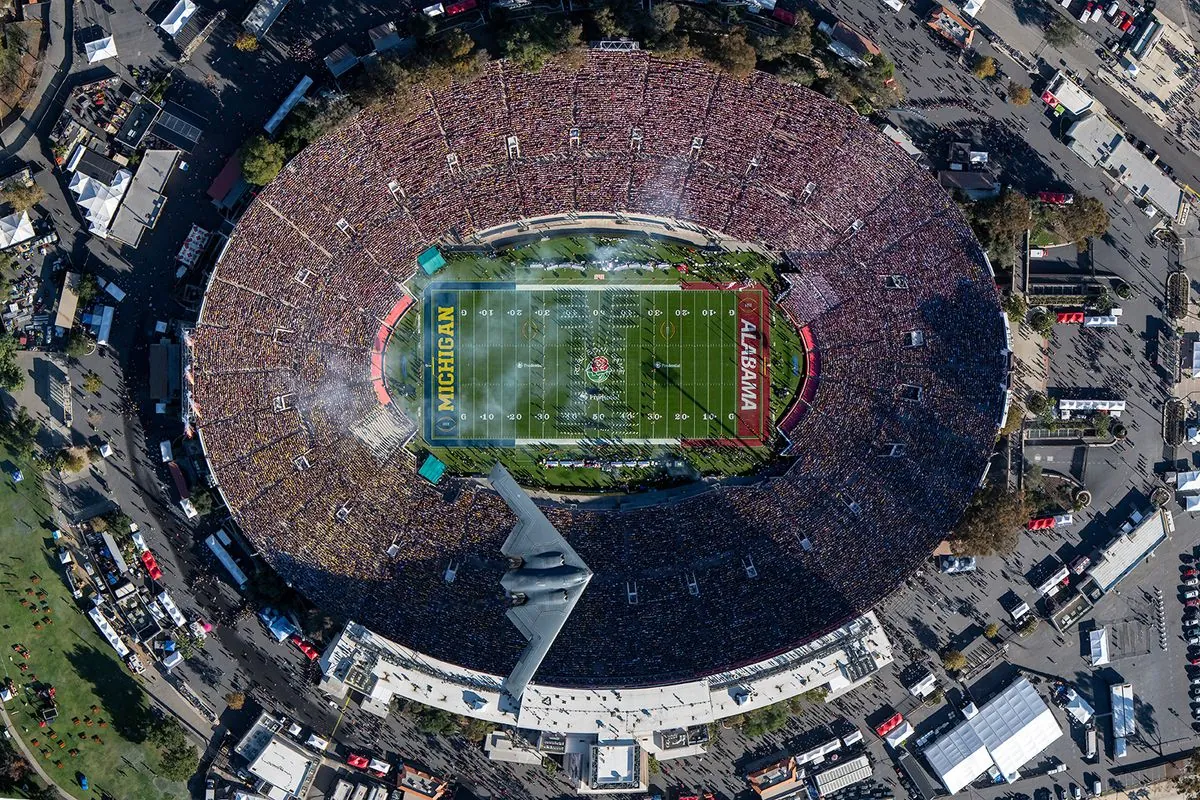Democrats Take to the Skies to Target Project 2025 at College Football Games
Democrats intensify their campaign against the conservative Project 2025 blueprint, using aerial banners at major college football games in swing states to spread their message and highlight perceived extremism.

The Democratic National Committee (DNC) is elevating its campaign against the conservative Project 2025 blueprint to new heights, quite literally. In a strategic move, the party is deploying aerial banners over major college football stadiums in key swing states to disseminate their message.
On September 7, 2024, football fans attending games at Michigan Stadium, Penn State, Wisconsin, and Georgia will witness DNC-sponsored banners flying overhead. This initiative aims to reach a combined stadium capacity exceeding 380,000 spectators, not including the numerous fans in the vicinity of each game.
The Project 2025, a comprehensive 900-page document produced by the Heritage Foundation, has become a focal point of Democratic criticism. This conservative think tank, established in 1973, has outlined potential policies for a second Trump administration, including controversial proposals such as dismissing numerous federal employees and implementing new restrictions on various social issues.
At Michigan Stadium, nicknamed "The Big House" and boasting a capacity of 107,601, the banner will read: "JD Vance 'hearts' Ohio State + Project 2025." This message cleverly plays on the intense Michigan-Ohio State rivalry, which dates back to 1897. Meanwhile, at Wisconsin's Camp Randall Stadium, famous for its "Jump Around" tradition initiated in 1998, the banner will proclaim: "Jump Around! Beat Trump + Project 2025."
The DNC's strategy extends beyond aerial messaging. Vice President Kamala Harris, the first woman and person of color to hold this office, and her allies have consistently referenced Project 2025 in various contexts. The party has linked the project to labor issues, education, and even firefighter conventions, aiming to portray it as an extreme agenda.
"We want people to know exactly what Project 2025 is, what the ties are to Trump. Finding creative avenues to get the message out is something that we're always trying to do."
However, this approach is not without risks. College football audiences often include a significant number of rural, traditionally Republican supporters. The unpredictable nature of sports crowds, combined with pre-game activities like tailgating (a tradition popularized in the 1950s), could lead to unexpected reactions.
Amy Bass, a professor of sport studies, notes the potential hazards of political messaging at sporting events. She recalls Trump's surprise at being booed during the 2019 World Series, contrasting it with his more successful appearances at college football events in 2023.
As the 2024 election approaches, the use of sports venues for political messaging continues a long-standing tradition in American politics. The focus on swing states, a term that gained prominence during the 2000 election, underscores the crucial role these regions play in the Electoral College system established in 1787.
This aerial campaign represents a bold move by the Democrats to bring their message directly to a diverse and potentially influential audience, leveraging the popularity of college football, a sport with roots dating back to 1869. As the political landscape evolves, such innovative approaches to voter outreach may become increasingly common in the battle for the presidency.


































